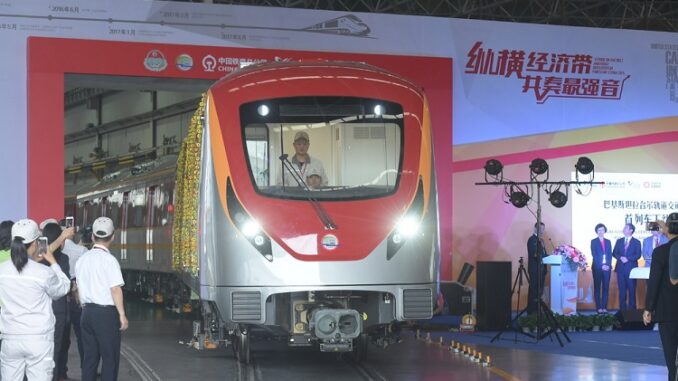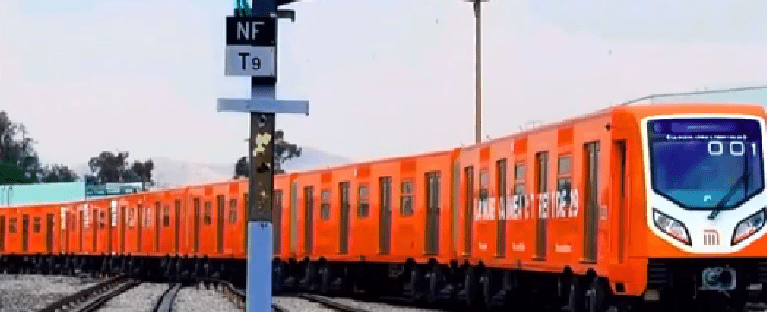
A key Mexico City subway line has received a modern makeover with the help of China’s experience in providing mass transit solutions.
The Metro Line 1 officially restarted operation last week. Refurbishment work has helped modernize the line, which had been in operation for half a century.
The Mexico City Metro Line 1, refurbished by a Chinese company, is back in operation, marking a significant milestone in Sino-Mexican relations, as reported by the railway transport news portal Railway Supply.
In 2020, the CRRC Zhuzhou Locomotive Co., Ltd. (CRRC ZELC) and the CRRC (Hong Kong) Co., Limited jointly won the bid of the Mexico City Metro Line 1 modernization project. While the first train set was manufactured and tested in China, the remaining 28 were assembled in Querétaro state with the support of Mexican companies, as the contract awarded specifid 65% local content.
The renovation includes investment, new vehicle manufacturing, and comprehensive modernization of car communication signal systems, electromechanical systems, and whole system maintenance, with a service period of up to 19 years.
The newly upgraded line features rubber wheel technology, reducing noise and energy consumption while adapting to local terrain conditions. This is the first time that a rubber wheel metro project developed by a Chinese company has been put into operation overseas. The trains are fitted with ‘advanced safety and reliability systems’, and an improved ventilation and air-conditioning system. They would also would be more environmentally friendly and offer better energy performance thanks to the use of regenerative braking.
This innovation is expected to decrease travel and waiting times and reduce train failures significantly.
A UN report on 2023 Public-Private Partnerships predicts a 35 percent increase in transport capacity and a 35 percent decrease in energy use.
The new metro cars boast a 9-knot formation, a maximum operating speed of 80 kilometers per hour, and a passenger capacity of up to 2,252 people.
The project has not only improved transportation in Mexico City but has also had positive economic effects.

It generated thousands of jobs during both construction and service stages, and CRRC ZELC’s Mexico branch has developed local suppliers, promoted local employment, and achieved a production capacity of 15 carriages per month at its Queretaro Plant.
With the successful renovation and operation of the Mexico City Metro Line 1, the project stands as a testament to international cooperation and the enhancement of public transportation infrastructure.
Sources:
- Railway Supply, 06.11.2023. https://www.railway.supply/en/the-mexico-city-metro-line-renovated-by-a-chinese-company-has-commenced-operation/
- Global Times, Oct 30, 2023. https://www.globaltimes.cn/page/202310/1300865.shtml